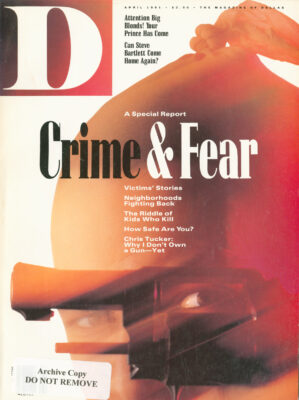Yet, by most accounts, no rail system in the world has survived without government subsidies. Even so, both Texas TGV and Texas FasTrac are playing officially by the no-state-money rules. Barnes is fond of citing, as a can-do example of his own line’s potential profitability, the high-speed Paris to Lyon TGV line that he says paid for itself in a matter of years. (Conveniently, this ignores France’s history of subsidizing some rail and therefore providing a ready-made ridership base. ) The Germans have made similar assurances; however, they appear more realistic in trying to secure government money from local, federal, and even some limited state sources that do not contradict the legislative mandate. But this could mean that Dallas taxpayers will be called on to pay a share of the bill (possibly by a reallocation of the penny sales tax currently collected for DART), and with a recession roaring and deficits soaring, substantial federal help is unrealistic at best. “If you look at it from a totally private-sector side, it’s not going to work, ” says Glenn Biggs, Texas FasTrac’s president. “The odds of making any real money on this thing are highly remote. “
With such a grim prediction from an interested party like Biggs, one can’t help but wonder why any credible lending outfit, public or private, would climb aboard. Biggs, however, defends the rail line on the grounds of economic altruism. The train, he says, will draw Dallas and downstate rival Houston into a closer relationship, creating in the process a single commerce center. Too, rail could offer an environmentally cleaner alternative to increasingly clogged highways and airports.
But high-speed rail has already raised questions of influence peddling and backroom shenanigans. Though the companies filing letters of intent on the project had to pay $100, 000 fees, they got an added bonus: the exclusive right to help draw the guidelines for the competition. And nearly all the major companies involved are in the construction or train-building business and could make their money in construction and equipment supply before dumping a money-losing operation in taxpayers’ hands.
“We have a reputation to protect, ” says Texas FasTrac’s Eisele, bristling at such a suggestion. “If we don’t think we can do it, we won’t do it. We have a duty to look after the public’s interest. “
But the consortiums need financing from somewhere, and that could likely mean a return to the Legislature. Many public interest advocates and rail opponents suggest that the winning consortium will seek financing through less than obvious means, such as state-secured debt and thus substantial taxpayer liability. Whatever the outcome, high-speed rail could bring a revolution in Texas transportation-or a scandal fit for the big screen.
Related Articles

Hot Properties
Hot Property: An Architectural Gem You’ve Probably Driven By But Didn’t Know Was There
It's hidden in plain sight.
By Jessica Otte

Local News
Wherein We Ask: WTF Is Going on With DCAD’s Property Valuations?
Property tax valuations have increased by hundreds of thousands for some Dallas homeowners, providing quite a shock. What's up with that?

Commercial Real Estate
Former Mayor Tom Leppert: Let’s Get Back on Track, Dallas
The city has an opportunity to lead the charge in becoming a more connected and efficient America, writes the former public official and construction company CEO.
By Tom Leppert


